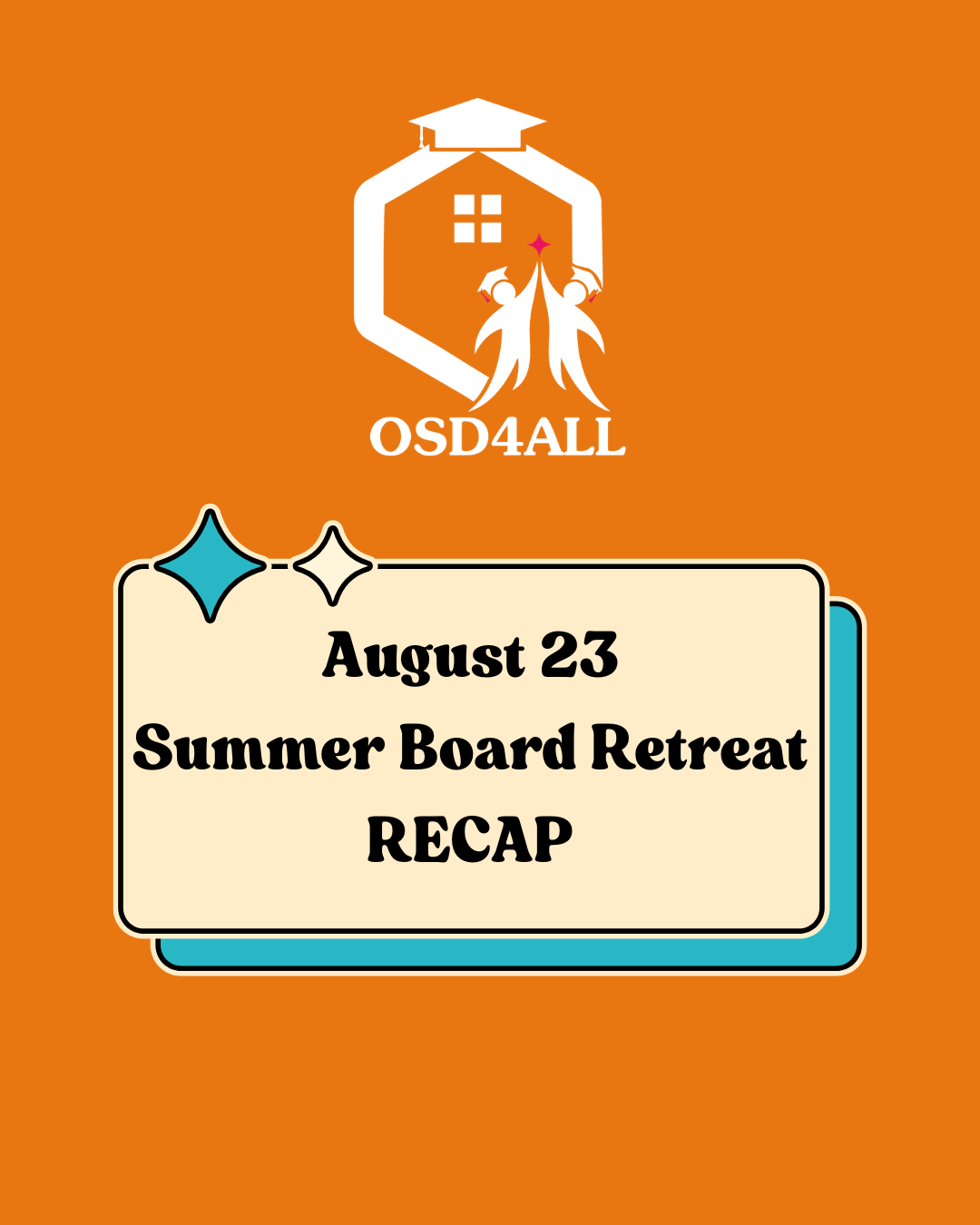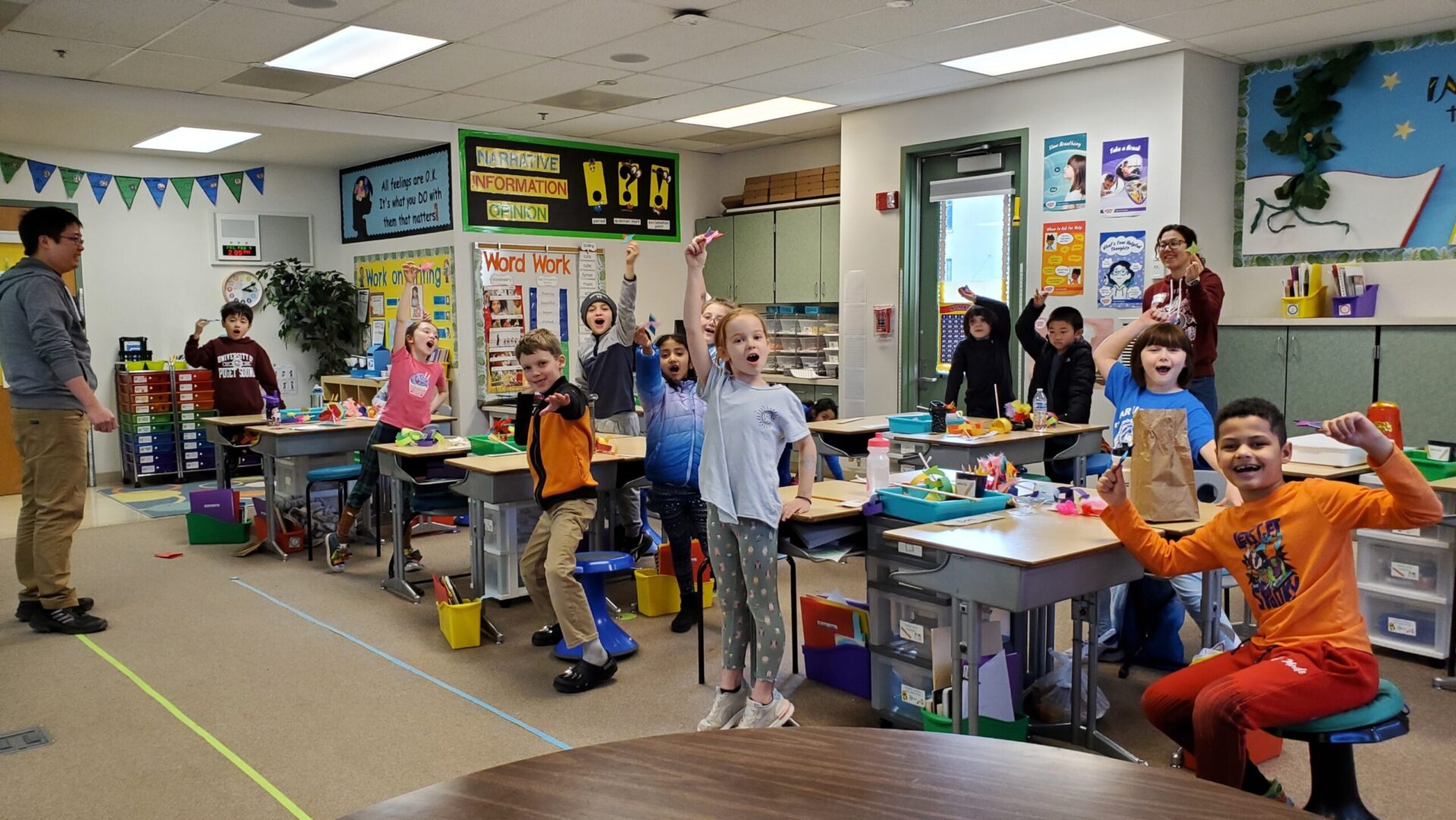On Saturday August 23, the Olympia School District board of directors held their summer retreat in district boundaries at the Friendly Meeting House. Public attendance was allowed, but the retreat was not streamed or recorded by the district. In attendance were Superintendent Patrick Murphy, Board President Scott Clifthorne, Vice-President Jess Tourtellotte-Palumbo, Directors Darcy Huffman and Hilary Seidel, and student representatives from all 4 OSD high schools. Director Maria Flores was absent with notice.
The Future of LAN
First on the agenda were updates to the Legislative Action Network (LAN) led by outgoing Director Huffman. In the 2026 legislative session, the House Education Committee will focus on Career & Technical Education (CTE), and the Senate K-12 Committee will focus on AI in schools. OSD currently has a broad AI policy related to plagiarism.
Director Huffman repeated that Lieutenant Governor Denny Heck claimed there was no money for education in coming years. The board also discussed how to get more LAN involvement with ParentSquare and continued engagement for legislative advocacy.
Dispute Resolution
The board was led through several collaborative exercises with a representative from the Dispute Resolution Center (DRC). Director Seidel and President Clifthorne revealed that they became board members because they went to board meetings to complain.
The DRC rep. said that to resolve conflict, you have to listen to all sides, but you don’t have to agree to understand. Though Director Seidel doesn’t agree with parents who don’t want to close schools, she says she needs to figure out how to show that she is listening. She stated, “I need time to use my thoughts to solve conflict.”
The board members discussed various ways they deal with conflict and stress, including breathing and supporting each other. Director Huffman mentioned that Olympia is a community full of state workers that live in a “process world.” “We live in a culture that is process-oriented…It’s not that we disagree with you. We disagree with the process.”
Superintendent Murphy’s Growth Goals
Superintendent Murphy discussed a child’s sense of belonging, which is a social-emotional (SEL) goal, being correlated to their academic success, and that though OSD is a high achieving district, it should always grow. Goals include:
- Academics: 60th percentile or higher for median academic growth
- SEL: 65% of elementary students and 55% of secondary students feeling like they belong
- Organizational: Murphy saw “an opportunity to reimagine program offerings, how we use our facilities…micro schools, career pathways, p-tech partnerships in health care, environmental education, sciences.” Expanding the Freedom Farm and a Capitol Building page program were also mentioned.
- Fiscal: Though the district is set to grow by 270 children over the next 3 years, Superintendent Murphy was adamant about having a 7% ending fund balance (EFB) in the next 4 years to cover one month’s payroll. This would be close to $14m in the 2025-26 school year. 4.7% EFB for 2026-2027 is a near term goal that means Superintendent Murphy would like to revisit the projected budget before the “books close in November.”
Some ideas for meeting this goal include:- A hiring freeze
- Further right-sizing based on enrollment
- Lobbying
- Adjusted staffing ratios. Murphy said, “It’s about flexibility in these areas…smaller classes versus larger sizes are preferred, right? But there is a lot of data out there now that says that class size does not make that much of a difference.” Murphy explained that adding one child to each classroom could add $750k to the budget. There was no further elaboration.
Other parts of the discussion focused on the number of paraeducators districtwide, that Hispanic children are underperforming at all schools, and communication improvements based on the communications audit.
Director Huffman mentioned the need for a completely different budget survey, and Director Seidel asked for less community members, parents, and staff (stakeholders) in committees and more “content matter experts.” She also asked for “guardrails” to be developed in order for the budget to be reviewed before November. They will be discussed at the next work session in September.
WSSDA Board Self-Assessment
A representative from WSSDA came to facilitate an assessment of the board based on worksheets submitted by all board members. The board scored highest on the WSSDA standard “Set and communicate high expectations for student learning with clear goals and plans for meeting those expectations” and lowest on the standard “Provide responsible school district governance.”
The board said that they could be more transparent with the community about fiscal matters by adding a monthly cashflow dashboard, and that they could update student outcome metrics as new data emerged.
President Clifthorne and Director Huffman would like to improve the budget survey to get better data about the community’s preferences. Huffman thought it should not ask who to fire, but what our goals and values are as a school district. Clifthorne thought the board should set goals for its own performance.
The WSSDA standard “engage local community and represent the values and expectations they hold for their schools” ranked second lowest, but led to more conversation. Director Seidel expressed that random meetings are not consistent, and that one-on-one meetings undermine the board’s collective governance. Superintendent Murphy recommended community cafes, akin to the cafe at Olympia High School in March 2024. Seidel expressed wanting more communication with parents beyond surveys and board meeting comment periods.
Director Clifthorne was frustrated by one board member’s assessment of board communication protocols. Though Clifthorne said that he follows two written protocols for communication, there are no written communication protocols for the board.
In the fall, there will be a Long Term Capital Facilities Planning Committee presentation, but there was not time to address the school year’s board calendar, so it was not scheduled.



